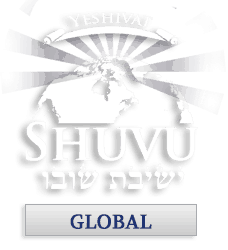זֶ֣ה הַדָּבָ֞ר אֲשֶׁר־צִוָּ֣ה יְהֹוָ֗ה לִבְנ֤וֹת צְלָפְחָד֙ לֵאמֹ֔ר לַטּ֥וֹב בְּעֵֽינֵיהֶ֖ם תִּֽהְיֶ֣ינָה לְנָשִׁ֑ים אַ֗ךְ לְמִשְׁפַּ֛חַת מַטֵּ֥ה אֲבִיהֶ֖ם תִּֽהְיֶ֥ינָה לְנָשִֽׁים: וְלֹֽא־תִסֹּ֤ב נַֽחֲלָה֙ לִבְנֵ֣י יִשְׂרָאֵ֔ל מִמַּטֶּ֖ה אֶל־מַטֶּ֑ה כִּ֣י אִ֗ישׁ בְּנַֽחֲלַת֙ מַטֵּ֣ה אֲבֹתָ֔יו יִדְבְּק֖וּ בְּנֵ֥י יִשְׂרָאֵֽל:
This is the word that the Lord has commanded regarding Zelophehad’s daughters. Let them marry whomever they please, but they shall marry only to the family of their father’s tribe. Thus, the inheritance of the children of Israel will not be transferred from tribe to tribe, for each person from the children of Israel will remain attached to the inheritance of his father’s tribe.
Numbers 36:6-7
This week’s Torah portion concludes the book of Numbers with a very interesting piece of halacha. The children of Israel are faced with a difficult problem. Zelophehad has passed away and he has no sons, therefore, his daughters are to inherit his land. He was from the tribe of Menasha. So far there is no problem, but if the daughters marry someone from a different tribe, then the land inheritance of Zelophehad will change tribes. The tribe of Menasha will lose land, and another tribe will gain it. This is a problem.
Hashem directs Moses to command the daughters that they may only marry men of their tribe, men of Menasha. This accomplishes the task of retaining the land within each tribe. The daughters of Zelophehad then comply and marry men of the tribe of Menasha, and a general rule is set for the children of Israel. Women who inherit land must marry within their tribe so that the land does not transfer from tribe to tribe.
Torah teaches us that the important characteristic of the tribe is in fact the land. It is the land that may not transfer from tribe to tribe. It is the land that is the primary characteristic of the tribe, therefore, tribal designation is geographic in nature.
There is a specific limitation put on daughters who inherit land. The daughters must marry within their tribe. There is a reason that this piece of halacha is spelled out in the Torah; it was not necessarily the habit of the daughters of Israel to marry within their tribes, nor was it required of the daughters of Israel to marry within their tribe. Only daughters that inherited land, daughters that had no brothers that were inheriting land, are required to marry within their tribe. This leads us to a very interesting conclusion: the bloodlines of the children of Israel mixed from the very beginning.
If the daughters of Israel married men from any and every tribe, and the bloodlines of the tribes were mixed, what does it mean to be of a certain tribe? If these intermarriages were commonplace between generations, and not every son inherited land, and the land was the important characteristic of the tribe, then what does it mean to be of a tribe? It means that it is where you live geographically. To say I am of the tribe of Zevulun means that I am from the area of the inheritance of Zevulun, it does not mean I am of the bloodline of Zevulun. Therefore, when Paul says he is of the tribe of Binyamin, it means his family is from Jerusalem or its surroundings. He may or may not be able to trace his bloodline back to Binyamin, and that’s not the important part. Designating a tribe is an indication of geographic area, like a state, county, or province. It is not an indicator of bloodline.
Prophecy tells us that Mashiakh is of the tribe of Yehuda. For Mashiakh, this in fact has a doubly important meaning: Mashiakh will be borne in the area of Yehuda (Efrat [Bethlehem] is in Yehuda) and that Mashiakh can trace his bloodline back to Yehuda. This is prophecy, not casual conversation. When speaking in normal conversation, being of a tribe is an indicator of the location of one’s family, not necessarily an indicator of bloodline.
The lost tribes of Israel, then, becomes more of an indicator of the exile rather than an indicator of bloodlines being lost. This is important to understand because it helps us to comprehend many things in Tanakh and in the writings of the sages. All throughout the history of the children of Israel we have identified and retained our knowledge of the bloodline of the tribe of Levi, and of the Kohayns. This is the only tribal bloodline of which we have kept track. We have not kept track of the bloodlines of Yehuda and Binyamin, much less the bloodlines of the northern tribes. So when we talk about the ten lost tribes, this includes the tribe of Levi even though that’s the tribe we kept track of with regard to bloodline. The reality is that we had to keep track of Levi because it is the only tribe that is not connected to a land inheritance. Therefore, if the identifier of tribe is land rather than bloodline, keeping track of Levi while knowing the land inheritance of the other tribes only makes sense.
